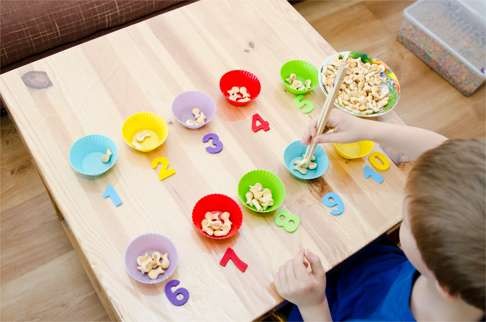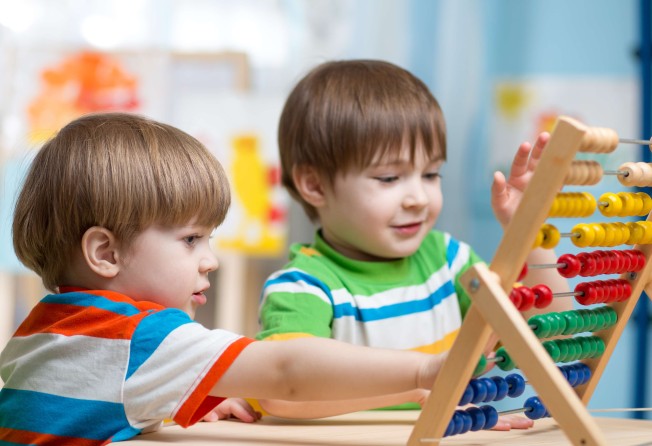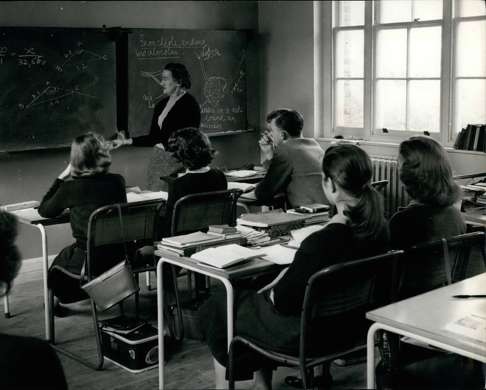
A Hong Kong mother worries her son’s maths lessons are too much fun
Children learn better through games and activities than old-fashioned structured and formal lessons, although the basic skills are vital, too

My son’s primary school recently organised a maths information evening for parents. The focus was mainly maths games and practical activities. While I can see these types of processing are fun for children and have some value, there seems to be a lack of formal teaching in the curriculum. The importance of learning multiplication tables was not even mentioned.
The teaching of maths today is a far cry from the endless repetition of number facts and standard textbook problems that many parents experienced when they attended school. Maths lessons are now generally far more fun, practical and relevant than they ever were.
Some parents are scarred from the negative experiences they had doing maths at school and have been completely put off the subject. It is possible that the teachers at your son’s school tried to make this workshop engaging for parents to show that the subject can be fun and interactive in order to dispel its traditional reputation of being difficult and dull.
It is well documented that in order for children to learn to their full potential they need to be engaged, motivated and appropriately challenged. Maths games are an excellent tool for learning numerical and general mathematical concepts especially in the younger primary years. Playing problem solving-type games in particular often requires strategic awareness and lateral thinking skills. The added element of pupil competition can be a powerful incentive for some.

Nothing motivates primary students more than having fun. When students are fully engaged in an enjoyable learning activity they are channelling powerful emotions that help the flow of blood to specific areas of the brain, and this enhances their capacity to learn. Anybody watching a group of students, who sometimes have difficulty concentrating, persisting at a challenging maths game with enthusiasm and passion, would agree.
One good lesson incorporating these elements is worth a dozen others in which students are frustrated and bored, and unable to interact with concepts that have no meaning for them. Rigour in the maths curriculum may not be immediately obvious to the casual observer but this does not mean it isn’t there.
Although teaching does tend to get more formal as children get older, games and practical activities are still an important part of the curriculum. The trick for teachers is to design and use mathematical games that have a definite purpose and help their students’ learning.
You raise an important point about multiplication tables. Quick mental recall of number facts and the ability to perform mental arithmetic to a reasonable level using the four basic operations is important and necessary in a wide range of situations. Having the skill to do this quickly and automatically allows pupils to focus on applying this to solving problems and investigating mathematical patterns. Computation games such as dice or board games require quick thinking and can help with learning basic mental arithmetic skills. This could be a good way for your son to practise his multiplication tables alongside rote learning methods. Having the confidence to make reasonably accurate estimates in all areas of maths is also vital in everyday life. Even when checking calculations on calculators or computers it is easy to press a wrong button.
Although primary-school children need to be competent in numbers, they are now also assessed on a wide range of criteria including measurement, algebra and patterns, estimation, data handling and aspects of space and shape.

As you imply, the teaching of mathematics requires a well-structured curriculum. Within this there should be a variety of teaching methods, including formal elements where teachers assess students’ progress and plan accordingly for the next steps in learning and targets to be met. A good teacher will employ the full range of strategies and approaches to suit the different types of learners in their classroom, including visual, auditory and kineasthetic learners.
There are some excellent curriculum models available worldwide, and most schools take one or more of these and adapt them for their pupils and teachers. If this was not clearly explained at the parents evening, ask at your son’s school for more details about the maths programme. Check how you can best assist at home and you may be surprised to learn that involving the whole family in a range of maths games that involve strategy, speed, estimation and initiative may not only be a way to get involved but might have enjoyable benefits, including rewarding interactions and lessons in social etiquette.
At times, there will always be a need to teach specific skills in isolation to ensure that pupils have the tools they need. It is more vital however, that they can think out of the box and see real-life mathematical applications and connections – core skills for the 21st century learner in a fast-moving, demanding world.
Julie McGuire is a former Hong Kong primary school teacher